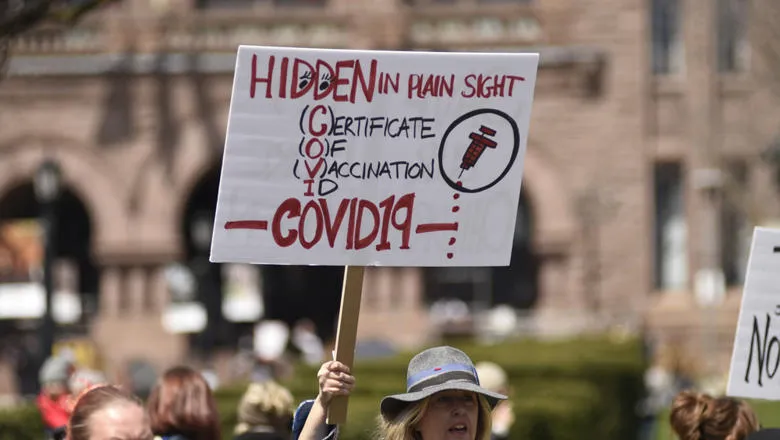
Dr Daniel Allington
Reader in Social Analytics
Biography
Daniel Allington is a social psychologist and historian with extensive expertise in qualitative and quantitative research methods. He began his research career as an applied linguist, with a particular interest in how people interpret ambiguous language — especially in literary texts — but over a course of years has shifted to an intensive study of antisemitism and extremism in the UK. He is Deputy Editor of Journal of Contemporary Antisemitism, a Senior Associate Fellow of Counter Extremism Group, and a Fellow of the London Centre for the Study of Contemporary Antisemitism.
Research Interests and PhD Supervision
- Extremism and political violence
- Antisemitism
- Conspiracy beliefs
- Cultural industries
- Applied statistics
Dr Allington is not currently accepting new PhD students.
Teaching
Dr Allington's teaching focuses on quantitative research methods, which he teaches at both undergraduate and postgraduate levels.
Expertise and Public Engagement
Dr Allington is a strongly policy-focused academic. He has worked with the Commission for Countering Extremism and a number of think tanks and civil society organisations, as well as having given evidence to the Home Affairs Select Committee.
Selected Publications
- Allington, D. 2025. Islamist antisemitism: a neglected hate. London: Counter Extremism Group.
- Allington, D. 2023. The national research environment for the study of extremism in the UK. London: Commission for Countering Extremism.
- Allington, D., Hirsh, D., and Katz, L. 2023. Antisemitism is predicted by anti-hierarchical aggression, totalitarianism, and belief in malevolent global conspiracies. Humanities and Social Sciences Communications 10 (155): 1-16.
- Allington, D., Brewer, D.A., Colclough, S., Echard, S., and Lesser, Z. 2019. The book in Britain: a historical introduction. Chichester and Hoboken: Wiley Blackwell.
- Allington, D., Dueck, B., and Jordanous, A. 2015. Networks of value in electronic music: SoundCloud, London, and the importance of place. Cultural Trends 24(3): 211-222.
Research

King's Cybersecurity Centre
An EPSRC-NCSC Academic Centre of Excellence in Cyber Security Research (ACE-CSR). It provides expertise on most areas of cyber security, it has a critical mass of researchers working on three main research themes and their interrelationship.

Digital Humanities Game Lab
The Digital Humanities Game Lab (DHGL) is a research group based in the Faculty of Arts and Humanities at King’s College London.
News
Study reveals people most likely to hold antisemitic views
People who believe in conspiracy theories are more likely to have antisemitic opinions than non-believers, new research shows.

Covid-19 vaccine hesitancy linked to reliance on social media and voting for Trump
New research by King’s College London and the University of Bristol, published in the leading peer-reviewed journal Vaccine, published by Elsevier, has found...

Left wing radicalism linked to sympathy for violent extremism
The more strongly someone agrees with the ideas of revolutionary left-wing groups, the more likely they are to sympathise with violent extremism, finds a new...

Events

Adventures in Fandom and Conspiracy Theory with Corpus Linguistics and the New Statistics
In this presentation, Dr Daniel Allington will introduce his research on texts produced within two very different online communities: YouTube users commenting...
Please note: this event has passed.
Research

King's Cybersecurity Centre
An EPSRC-NCSC Academic Centre of Excellence in Cyber Security Research (ACE-CSR). It provides expertise on most areas of cyber security, it has a critical mass of researchers working on three main research themes and their interrelationship.

Digital Humanities Game Lab
The Digital Humanities Game Lab (DHGL) is a research group based in the Faculty of Arts and Humanities at King’s College London.
News
Study reveals people most likely to hold antisemitic views
People who believe in conspiracy theories are more likely to have antisemitic opinions than non-believers, new research shows.

Covid-19 vaccine hesitancy linked to reliance on social media and voting for Trump
New research by King’s College London and the University of Bristol, published in the leading peer-reviewed journal Vaccine, published by Elsevier, has found...

Left wing radicalism linked to sympathy for violent extremism
The more strongly someone agrees with the ideas of revolutionary left-wing groups, the more likely they are to sympathise with violent extremism, finds a new...

Events

Adventures in Fandom and Conspiracy Theory with Corpus Linguistics and the New Statistics
In this presentation, Dr Daniel Allington will introduce his research on texts produced within two very different online communities: YouTube users commenting...
Please note: this event has passed.
